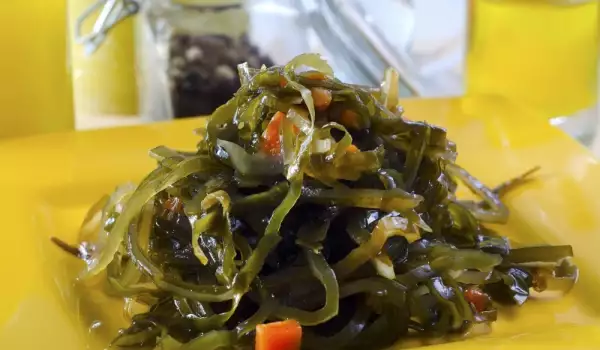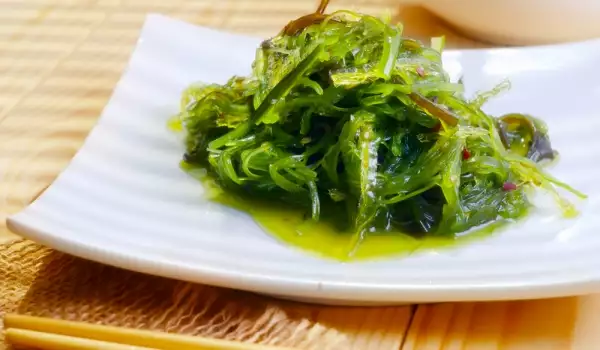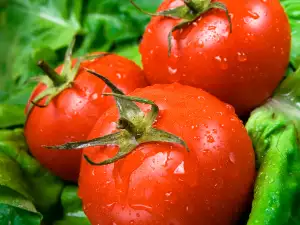Kelp is the name for a group of macroalgae that grow in the shallow coastal zones of oceans and seas. Often they are seen along the coasts of the Atlantic and Pacific Oceans, North Sea and western parts of the Baltic Sea.
Kelp is most likely one of the oldest plant species on our planet. Biologists think that it is the ancestor to almost all of the vegetables we are familiar with today.
Kelp is one of the major plant foods in the Earth's ecosystems. It is brown colored and varies greatly in its appearance. It can reach 40″ (100 cm) or longer. It is easily identified by the small sacs filled with gas, located on both sides of the central stem, going through the middle of the leaf.
It has been proven long ago that adequate mineralization by eating right normalizes and calms human behavior. The lack of minerals can be linked to every symptom of poor health and uncharacteristic extreme behavior.
Composition of Kelp
Kelp contains a whole range of polyunsaturated fatty acids and biologically active polysaccharides. The minerals best represented are sodium, iron, phosphorus, calcium, potassium and magnesium.
The vitamins best represented are А, С, D, Е, В1 and В2. All food nutrients found in kelp are easily absorbable by the body. Kelp is exceptionally rich in iodine.
Choosing and Storing Kelp
Kelp is sold as a food additive. A small bottle of 180 kelp capsules costs about $8. Keep away from direct sunlight.
Daily Dose of Kelp
The recommended daily dose of kelp for adults depends on the way it is taken. If taken in the form of a food supplement, the daily dose should not exceed 150 mcg. Kelp can be combined with various metabolism activating plants such as milk thistle, liquorice, ginseng, rosemary, common verbena.
Benefits of Kelp
Kelp has a stabilizing effect on the nervous system, increases metabolism, slows the development of atherosclerosis and decreases the levels of cholesterol in the blood.
The polysaccharides found in kelp have the ability to swell. After they increase in volume they begin to irritate the nerve endings and intestinal lining which stimulates peristalsis and allows for their purging.
The polysaccharides can attach to toxins and remove them from the body. Kelp is one of the richest sources of micronutrients, especially iodine. Because of this it is beneficial against all types of hypothyroidism - a decreased function of the thyroid gland.

Kelp helps restore hormonal balance, it helps during poor circulation in the blood vessels of the brain. It is used for impaired memory in children, to decrease fatty deposits in obese persons and to slow the processes of aging.
Kelp is used to combat radioactive iodine in cases of radioactive contamination of food and a region. It is also used as a prophylactic in working conditions that present a potential danger to human health.
In addition, kelp contains xylose, an essential sugar. It is an excellent antifungal and antibacterial component that helps reduce the risk of cancer of the digestive system.
Another essential sugar found in kelp is fucose. It is a great antiviral substance, protects from lung diseases, fights allergies and maintains long-term memory.
The third essential sugar in kelp is galactose, which facilitates the quick healing of wounds, improves memory and calcium absorption.
Dangers of Kelp
Large doses of this seaweed should not be taken during hyperthyroidism - the increased function of the thyroid gland. If you are allergic to iodine containing products and have very high blood pressure, taking kelp is also not recommended.
Pregnant and breast-feeding women, as well as people taking iodine medications must consult with a doctor before they begin using kelp. If you do not belong to any of the aforementioned groups, there are no known side effects but the recommended daily dose should still not be exceeded.















